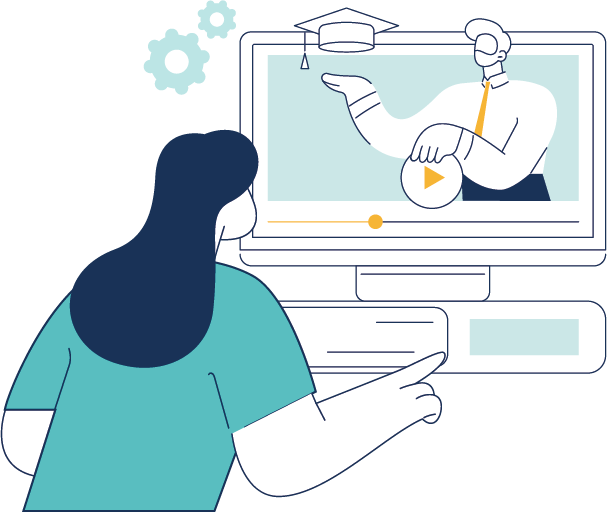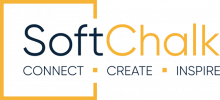Equipping teams with practical training tools is essential for fostering engagement, improving efficiency, and achieving impactful outcomes. Programs like AssetWorks Continuing Education (ACE) and FacilityForce’s Educate showcase how SoftChalk can revolutionize departmental training and team development.
Joanne Pinna, an Instructional Technologist Manager at the University of Maryland School of Nursing, provides valuable insights into how these approaches can elevate professional training and course development across various functions.
The Importance of Template Design and Consistency
For both current SoftChalk users and instructors alike, it’s essential to understand how templates can enhance productivity and efficiency in content creation. Consistent, well-structured templates are vital for delivering content that supports effective learning and training. Pinna emphasizes: “Having a template, one of the things to consider is the consistency.” Consistent design enables team members to quickly engage with training materials without being distracted by unfamiliar or inconsistent formats. In her experience, using templates allowed faculty to save up to two weeks typically spent orienting themselves to varied course layouts.
Using SoftChalk in training applications like ACE and Educate reinforces this idea by allowing teams to easily create, distribute, and track recurring training processes. This consistency ensures that employees can focus on absorbing content, boosting individual and team productivity. By following these structured paths, training becomes clearer and more efficient, regardless of the field.
Support and Hands-On Training
Personalized, hands-on support is key to helping team members understand and effectively use new tools. Pinna notes, “We are basically their coaches. [..] If they’re stuck, they call us.” This one-on-one assistance helps users navigate software like SoftChalk, whether within an educational system like Blackboard or for general training purposes.
Programs like ACE and Educate use SoftChalk to help teams navigate new tools and systems confidently. Whether it’s onboarding new staff or re-training on newer modules, having consistent and hands-on learning opportunities strengthens understanding. This approach isn’t just for educators—it’s a resource for anyone looking to enhance organizational training with SoftChalk.
Initial Training Courses and Best Practices

Onboarding processes are essential for setting a strong foundation for team development. Pinna highlights that initial courses, such as “a Blackboard explanation course,” equip new members with the knowledge to effectively navigate tools and platforms. ACE and Educate build on this by offering courses that introduce both practical skills and best practices in facilities-oriented training development. Training modules are available to cover topics at both high-level and in depth.
These foundational programs cover crucial concepts like information chunking, which improves user understanding. “Faculty should understand the importance of chunking information for students,” Pinna points out. In any training setting, chunking content makes learning more digestible and engaging. Organizations can leverage SoftChalk through initiatives like ACE and Educate to strengthen their teams, instill a sense of ownership, and drive competence across departments.
Promoting Independent Learning and Training
An essential goal for any training program is to promote autonomy among participants. SoftChalk encourages this by providing comprehensive resources and templates that users can adapt to their needs. “That’s how you begin… hopefully the seed will grow and the faculty to be independent, to be able to teach their courses in a much more effective way,” Pinna shares. This same principle applies to departmental training. By leveraging SoftChalk, ACE empowers team members to adapt, supporting their growth and contributing to a culture of continuous learning.
Both ACE and Educate programs similarly aim to bolster the independence of their participants by providing ongoing training that team members can apply on their own. This approach ensures that knowledge isn’t just passively received but actively utilized in practical scenarios. ACE and Educate training tracks can be accessed anywhere, anytime through the SoftChalk Cloud portal, allowing for continuous independent training and learning.
Continuous Evaluation and Feedback Mechanisms

Gathering feedback and evaluating the effectiveness of training is essential for sustained improvement.
“We have sort of an evaluation process,” Pinna explains, stressing the importance of reviewing outcomes and
seeking feedback to identify strengths and areas for improvement. This iterative process helps teams understand what works well and refine their training strategies.
ACE and Educate allow teams to implement feedback loops, making training adaptable and responsive. By incorporating these evaluation mechanisms, organizations can maintain high-quality training and continually adapt to meet new challenges.
The Power of Integrating ACE and Educate with SoftChalk for Comprehensive Training
If you’re a SoftChalk user who hasn’t explored its potential beyond traditional education, ACE and Educate demonstrate just how versatile the software can be. The combination equips teams with the skills, confidence, and independence needed to create value you can track and distribute. The philosophies behind both programs ensure that participants are not just trained but empowered to implement what they’ve learned effectively. With structured modules, continuous evaluation, and a focus on best practices, faculty, and team leaders alike benefit from an enriched learning environment.
Ready to elevate your team’s professional development and foster a culture of continuous improvement? Contact us today to explore tailored solutions for your organization!

Leave a Reply